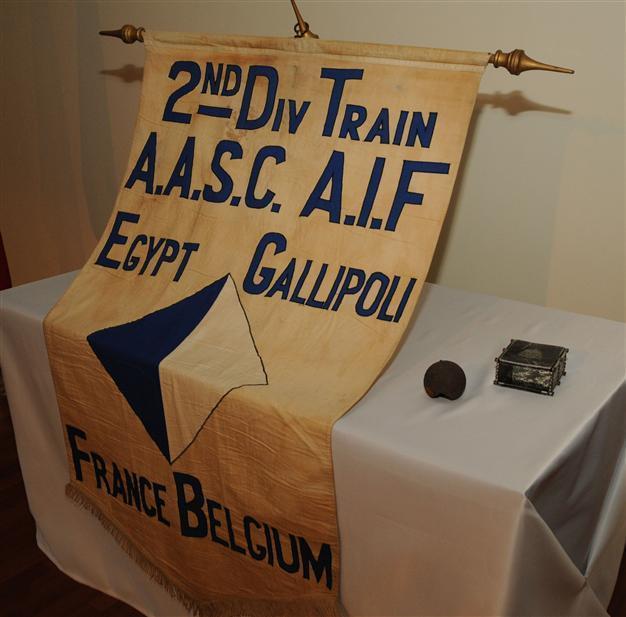Australia donates Gallipoli artifacts to Turkish museum
ÇANAKKALE - Anadolu Agency

AA photo
Australia presented three artifacts from the 1915 Battle of Gallipoli to a Turkish military museum on Aug. 7 as a "gesture of friendship".Addressing a ceremony at the museum, Australian Governor-General Peter Cosgrove said that the handing over of the artifacts was "an appropriately significant gesture of the friendship and goodwill we share and a sign of the importance of the 100th anniversary of the campaign to our two countries".
Cosgrove thanked the Turkish Navy and Çanakkale Navy Museum for being consistent and supportive partners of Australia. "The Çanakkale Naval Museum, like the Australian War Memorial, plays an important part in preserving the military history of the nation and ensuring that future generations are informed and educated about the sacrifices of those before them," he said.
About the three artifacts, Cosgrove said: "The standard of the 2nd Division Train Australian Army Service Corps AIF shows the battle honors of Egypt, Gallipoli, France and Belgium".
He added that the periscope, which was used by Lieutenant Colonel JC Robertson, who was possibly one of the first men ashore on Gallipoli, was a rare example of a folding periscope used to observe the battlefield from a trench.
Cosgrove also said that the hand grenade used by the Anzac (the Australian and New Zealand Army Corps') forces was commonly referred to as a "cricket ball".
"[It] perhaps helps explain why a number of them were able, on occasion, to successfully catch the grenades and return them before they exploded," he said.
"I am very pleased to be returning this one to its original owners in a much more peaceful manner and in much happier circumstances," he added.
Cosgrove and an accompanying delegation also visited the museum after the ceremony.
Turkey is holding additional ceremonies to commemorate 1915's Gelibolu (Gallipoli) fighting in Çanakkale, scene of the pivotal World War One conflict.
Tens of thousands of Turkish nationals and soldiers died in the eight-month campaign, along with tens of thousands of Europeans, plus between 7,000 - 8,000 Australians and nearly 3,000 New Zealanders.
This year marks 100 years since the conflict in the Dardanelles Strait, which became a turning point for Turks fighting against the invading Allies during WWI.
More than 43,000 Australians and New Zealanders had applied to attend this April's main annual commemorations but just 10,000 places were available.
















